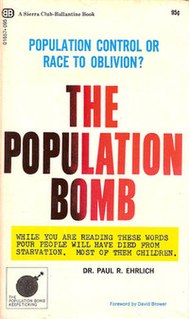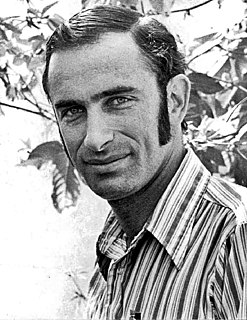This article is being considered for deletion in accordance with Wikipedia's deletion policy. Please share your thoughts on the matter at this article's deletion discussion page. |
This article may require cleanup to meet Wikipedia's quality standards. The specific problem is: Many of the names listed are not included at the sources. The sources themselves appear to have reliability problems including song lyrics, jokes, and statements that are not clearly about overpopulation.(May 2020) (Learn how and when to remove this template message) |
The people in this list have expressed concerns about human overpopulation.



